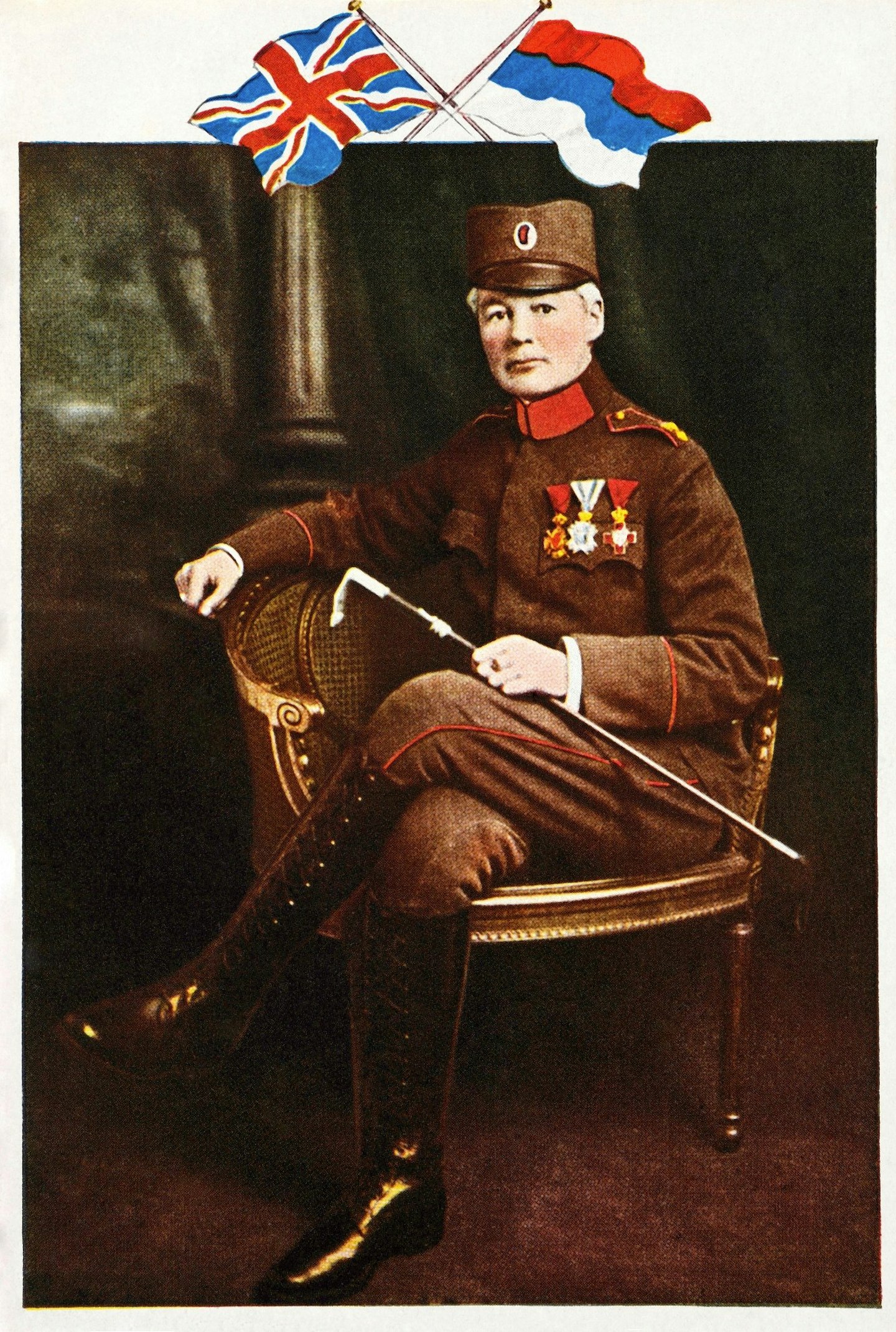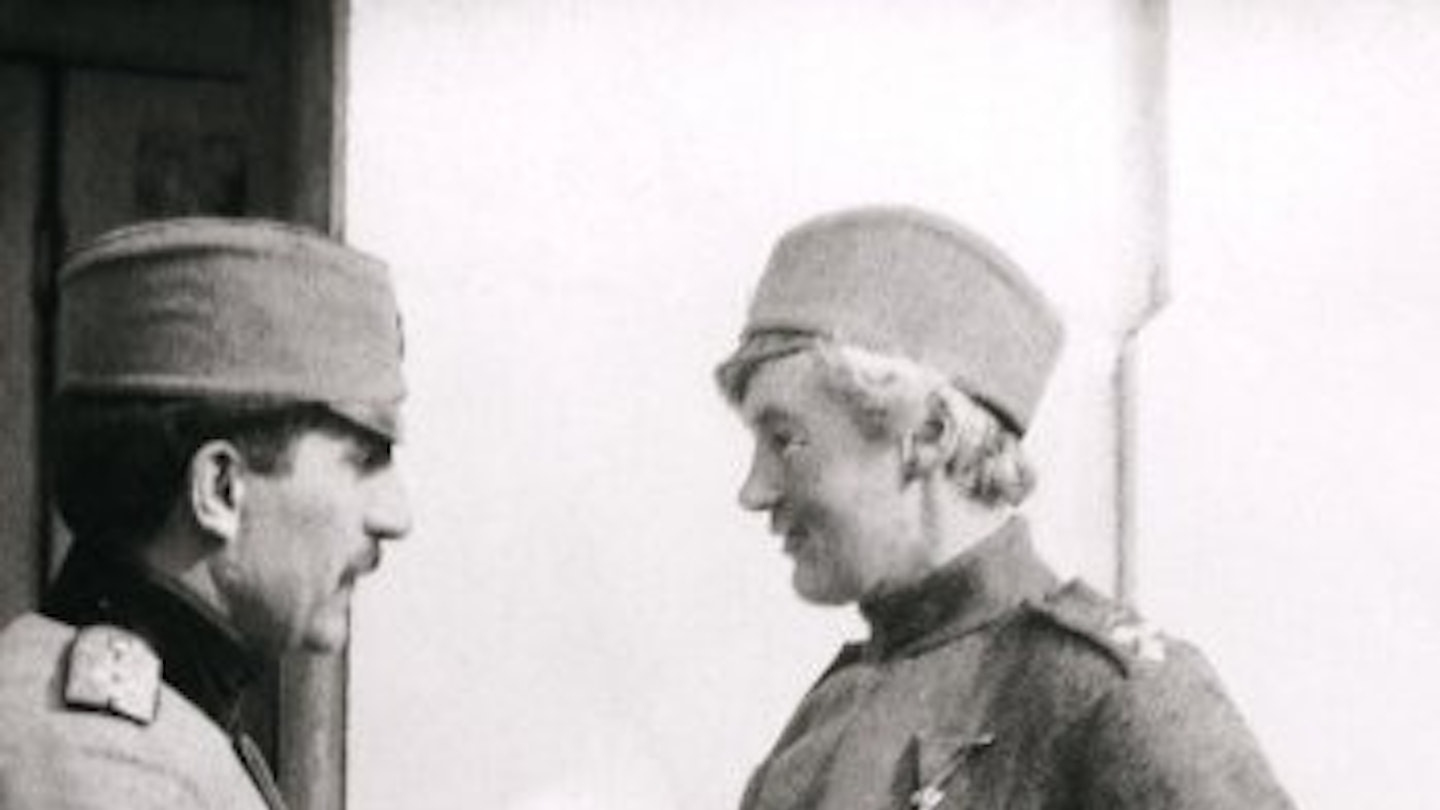There are many unsung war heroes, but here is an unsung heroine - the only British woman to have served on the frontline in both World Wars. Drinking, smoking, racing cars and shooting Flora Sandes was considered a ‘brother’ by her fellow soldiers and ‘shifted the perception of what women could do,’ according historian Louise Miller - who has just released a biography of her as part of the commemoration around the fact it's 100 years since WW1 broke out this year.
Born in 1876, Flora was the youngest of eight children in a middle class family, she had a governess and spent some time at a finishing school. All perfectly prim and proper and normal for those times. But then, Flora turned away from ‘feminine’ pastimes so she could go off on adventures. Giving up job as a stenographer (writing very quickly using one of those nifty typewriters they use in court) she worked as a secretary in Cairo, camped in Canada and even shot a man (in self-defence, btw) while travelling through America.
So, when Britain declared war against Germany in 1914, Flora, then 38, was raring to go. Like some other women, she signed up to be a volunteer for the Red Cross. However, she wasn’t entirely satisfied with this role, so, unlike many women, she enlisted in the Serbian army. (She wasn’t Serbian, but she was allowed to join because Serbia was a Allied force and, at this point in history, the only country to let women fight for them). ‘During the war [women] had more freedom than anywhere else, partly because the Serbians didn’t know what to make of these women and their need was so desperate.’, Miller says in the yet-to-be-aired BBC documentary.

Flora rose through the ranks to become a sergeant major and was awarded a medal for her bravery under fire when wounded by a grenade. After recovering, she went back to the trenches, engaged in hand-to-hand combat, survived a bout of the potentially fatal Spanish influenza, but was left with shrapnel embedded in her back for life.
After the war ended in 1919, Flora remained in the army, saying ‘I never loved anything so much in my life’. But when she was demobilised (let go from the army after being told she’d served enough time) three years later, she couldn’t deal with what was expected of normal women again: ‘The first time I put on women’s clothes, I slunk through the streets.’
She spent time in England and Serbia, and in 1927, she married Yuri Yudenitch, a sergeant of hers 12 years her junior, settling in the newly-formed Yugoslavia. However, in 1941, when Flora was 65, the Second World War began. She immediately joined the forces again and headed to battle, but the Germans defeated the Yugoslav army in under two weeks and occupied the country. Arrested by the Gestapo, she was forced to report to them every week for the rest of the war.
Her husband Yuri died of heart failure during the war but afterwards, when she was free, she spoke of not wanting to let her bereavement set her back. Instead Flora lived with her nephew in Jerusalem for a while and then Rhodesia (Zimbabwe) where she caused a stir amongst her supposed peers by boozing and smoking with the locals. (Respect). Returning to Suffolk in her later years, she would use an electric wheelchair to get around, attended annual reunions to commemorate the wars, and renewed her passport very shortly before she died of 'obstructive jaundice' in 1956 aged 80.
‘She let nothing hold her back. She did what she wanted to do and she was proof that women could do whatever they wanted,’ Miller says of her subject, who is to feature on BBC Radio Suffolk as part of the World War One At Home series. ‘She was a heroine. She really pushed the boundaries’
Flora's story is proof fyi that the BBC's season commemorating 100 years since the outbreak of the First World War isn't as boring and fuddy duddy as you think. There are loads of stories you might find interesting: interviews with the teenage girls who served in the munitions factories, and a documentary about the drag king who recruited for the war effort.
Follow Sophie on Twitter @sophwilkinson
**Pictures: Getty **
This article originally appeared on The Debrief.
